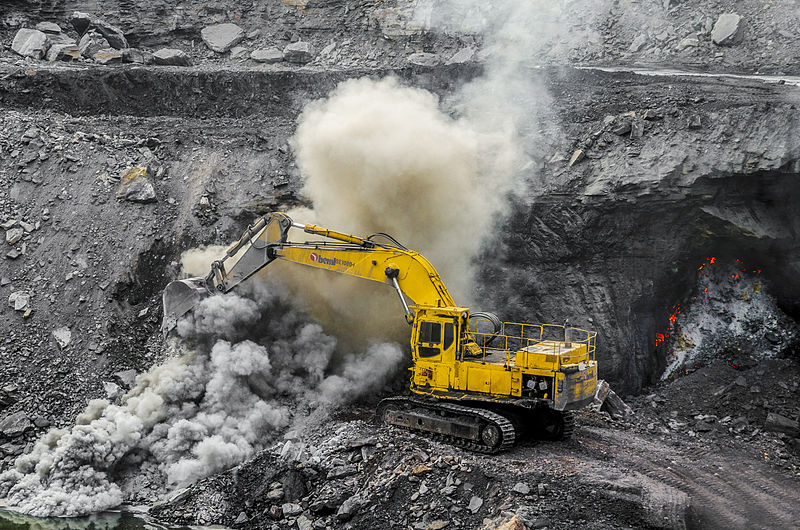Call for public inquiry over new coal mine
UPDATE: The county council is to suspend their decision and re-assess the permission it granted for the mine, in the light of concerns over climate change.
As the UK prepares to host a crucial UN climate summit, the government is facing questions over its support for a new coal mine near Whitehaven in Cumbria. Quakers in Britain are among those urging ministers to think again.

In a letter to the Prime Minister, Boris Johnson, scientists, green campaigners, faith representatives and government advisers say it is mystifying that the government has decided not to intervene in the approval of the UK's first deep coal mine in 30 years. They have called for a public inquiry.
The letter, in full:
Dear Prime Minister,
We are writing to raise some very serious concerns about the decision to proceed with the Whitehaven coal mine in Cumbria.
As you know, the UK founded and co-chairs the Powering Past Coal Alliance and is President of this year's COP26 climate summit in Glasgow. Given that our credibility, as host of the largest global climate talks since the signing of the Paris Agreement is at stake, it is mystifying that the government has decided not to intervene in the approval of the UK's first deep coal mine in 30 years. This decision will make it much harder to fulfil the ambitions of the Powering Past Coal Alliance.
Alok Sharma MP, the COP president, when questioned before a Commons business select committee clearly understood that the mine approval was an embarrassment. The Climate Change Committee has urged the government to reconsider, highlighting that the increase in emissions from this mine alone would amount to more emissions than it has projected for all open UK coal mines to 2050.
New jobs need to be created, including in renewable energy, energy efficiency and alternatives to using coking coal in the steel industry. You have rightly talked about a green industrial revolution. The UK must lead the way with low-carbon technologies, rather than looking to the polluting industries of the past. It is crucial to support West Cumbria communities in their transition to genuinely sustainable employment. Research shows that concerted action and investment in green industries in the region would provide significantly more than the 500 jobs promised by the new mine.
The Climate Change Committee has said all coal, including coking coal, should be phased out by 2035. The government therefore risks allowing the creation of a stranded asset as the mine may be required to close only a few years after it opens. It also sends the wrong signal to all those countries who want to hold on to coal from Poland to China.
Furthermore, Secretary of State Robert Jenrick MP's reasoning that it is a 'local issue' undermines UK leadership: it is widely understood that climate change and air pollution related to burning coal is a global problem.
MHCLG could still review the decision not to call in the mine because Cumbria County Council is yet to issue the final decision notice and subsequent planning permission. The grounds for this, including new information since the 6 January decision not to call it in, would be:
1. The Planning Unit had not had a chance to consider new information, notably the CCC letter of 29 January;
2. The national controversy caused by the mine, in particular since the 6th January decision - a stated reason for call-in is if it may “give rise to substantial cross-boundary or national controversy";
3. If it involves the interests of foreign Governments - which is the case, given conflicts with COP26 diplomacy;
4. It “may conflict with national policies on important matters" – another stated reason for call-in - specifically climate change, as has been acknowledged both by the Chair of the Climate Change Committee and the Secretary of State for Business, Energy and Industrial Strategy.
Given that Cumbria County Council could issue its final decision notice very soon, time is of the essence. We believe strongly that the best way to resolve the issue would be for Secretary of State Robert Jenrick MP to call in the decision, and refer the matter to a public inquiry. Reversing this decision would help restore confidence in the UK government's climate leadership both internationally and at home.